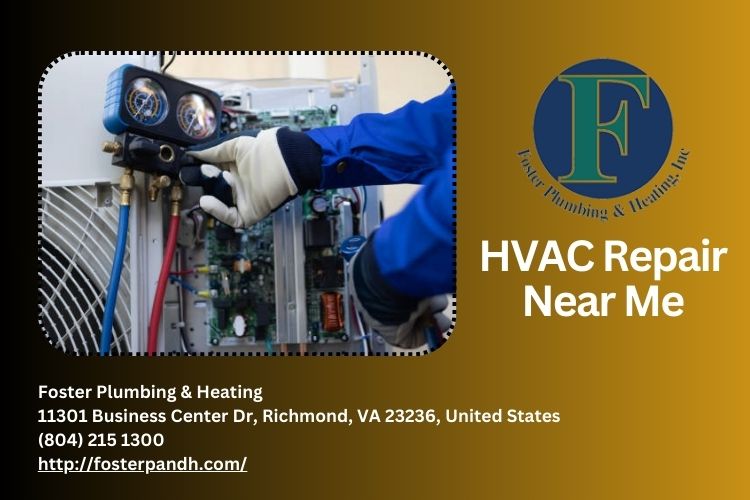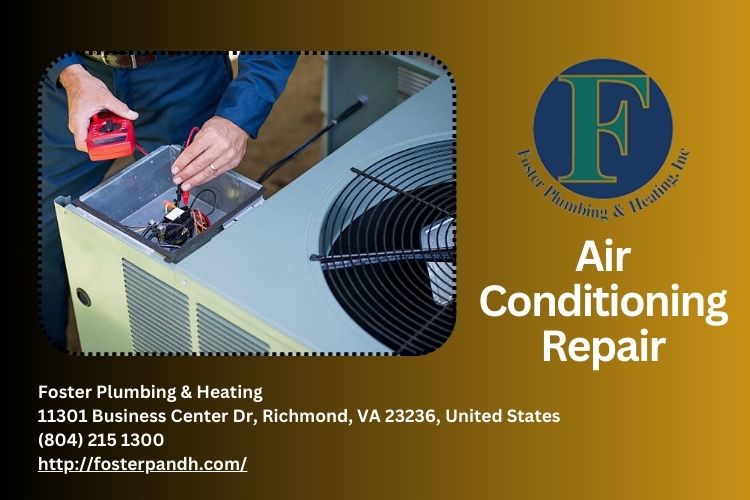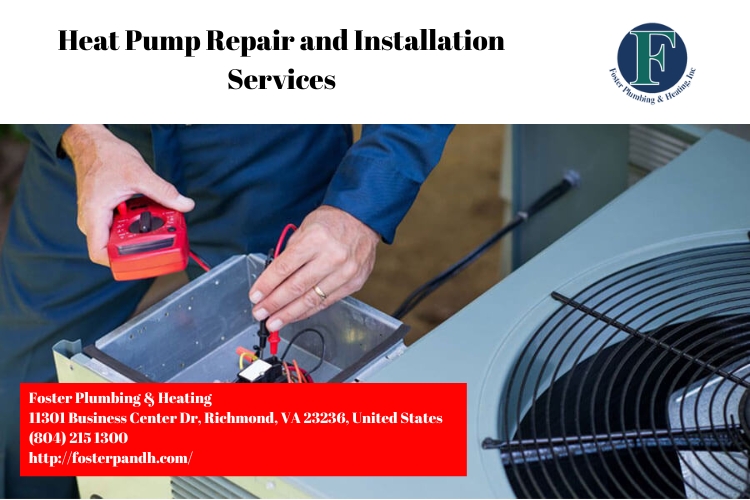Introduction
In an era where energy consumption and environmental impact are at the forefront of our discussions, finding ways to optimize our homes for energy efficiency has become a priority for many homeowners. Heating, ventilation, and air conditioning (HVAC) systems are often the largest consumers of energy in a household, making it essential to understand how to make them tankless water heater more efficient. This guide aims to provide you with everything you need to know about energy-efficient HVAC systems, courtesy of Foster Plumbing & Heating.
From understanding the basics of HVAC systems to exploring specific energy-efficient technologies, we provide insights that can help you save money and reduce your carbon footprint. So let's dive right in!
What is an HVAC System?
Understanding the Components of HVAC Systems
An HVAC system is composed of several key components that work together to regulate indoor climate:
- Heating Equipment: Furnaces or heat pumps are used for heating. Ventilation: This involves the exchange of indoor air with outdoor air. Air Conditioning: Cooling units provide temperature control during warmer months.
Each component plays a crucial role in ensuring comfort within your home.
How Does HVAC Work?
HVAC systems operate on the principles of thermodynamics. Heat naturally moves from warmer areas to cooler ones. In winter, heating systems work by transferring heat from outside (even when it’s cold) into your home. Conversely, during summer months, cooling systems remove heat from your living space.

Foster Plumbing & Heating's Comprehensive Guide to Energy-Efficient HVAC Systems
Why Invest in Energy-Efficient HVAC?
Energy-efficient HVAC systems offer numerous benefits:
Cost Savings: Lower utility bills. Enhanced Comfort: More consistent temperatures. Environmentally Friendly: Reduced carbon emissions.Investing in an energy-efficient system can pay off significantly over time.
Key Features of Energy-Efficient HVAC Systems
SEER Ratings: What Are They?
The Seasonal Energy Efficiency Ratio (SEER) measures how efficiently a cooling system operates over a typical cooling season. Higher SEER ratings indicate greater efficiency.
AFUE Ratings Explained
Annual Fuel Utilization Efficiency (AFUE) ratings apply to heating systems and indicate how much fuel is converted into usable heat. A higher AFUE rating means less wasted energy.
Types of Energy-Efficient HVAC Systems
Heat Pumps
Heat pumps are versatile units that can provide both heating and cooling by transferring heat between indoors and outdoors.
Pros and Cons
| Pros | Cons | |--------------------------|------------------------| | High efficiency | Initial installation costs | | Environmentally friendly | Performance may vary in extreme climates |

" width="560" height="315" frameborder="0" allowfullscreen>
Ductless Mini-Split Systems
These systems consist of an outdoor compressor and one or more indoor units, offering zoned temperature control without ductwork.
Benefits
- Flexibility Easy installation Zoned comfort
Choosing the Right Size for Your HVAC System
Why Size Matters
Choosing an appropriately sized unit is critical for efficiency; too large or too small can lead to inefficiencies and increased wear-and-tear on components.
How to Calculate the Right Size
The best way to determine size is through Manual J load calculations conducted by certified professionals.
Installation Best Practices for Energy-Efficient HVAC Systems
Professional Installation vs. DIY
While some homeowners may be tempted to install their own units, professional installation ensures that all components work together optimally without compromising safety standards.
Importance of Proper Ductwork Design
Well-designed ductwork minimizes leaks and maximizes airflow efficiency—essential aspects for any energy-efficient system.
Regular Maintenance Tips for Your HVAC System
1. Change Filters Regularly
Dirty filters restrict airflow and force your system to work harder than necessary, leading to inefficiencies.
2. Schedule Annual Inspections
Annual inspections help identify potential issues before they become major problems, ensuring longevity and performance efficacy.
3. Use Programmable Thermostats
Programmable thermostats allow for better temperature management throughout the day, promoting energy savings when no one is home.
Signs You Need an Upgrade or Repair
1. Rising Energy Bills
If you notice significant increases in your utility bills without changes in usage habits, it may be time for an upgrade or repair.
2. Unusual Noises
Strange sounds coming from your system can indicate underlying problems needing immediate attention from professionals like those at Foster Plumbing & Heating.
Foster Plumbing & Heating’s Commitment to Services Near You
At Foster Plumbing & Heating, we pride ourselves on delivering top-notch HVAC services near me. Our team is equipped with the skills and experience necessary to handle installations, repairs, and maintenance with utmost professionalism.
Contact Us
Foster Plumbing & Heating
Address: 11301 Business Center Dr, Richmond, VA 23236, United States
Phone: (804) 215-1300

FAQs About Energy-Efficient HVAC Systems
1. What makes an HVAC system energy-efficient?
Energy-efficient systems use advanced technology like variable-speed motors and smart thermostats which optimally manage energy use while maintaining comfort levels.
2. How do I know if my current system needs repair?
If you're experiencing inconsistent temperatures or rising utility bills, it's likely time for a check-up from professionals who specialize in HVAC repair near me.
3. What are some common mistakes people make when choosing an HVAC system?
Common mistakes include not considering future needs or ignoring local climate conditions which can affect overall performance and efficiency.
4. Can sealing ducts really improve efficiency?
Absolutely! Properly sealed ducts prevent air loss which enhances overall system performance— reducing wasted energy significantly!
5. Is it worth investing in programmable thermostats?
Yes! They allow you greater control over how much energy you're using by automatically adjusting based on your schedule—definitely worth considering!
6. When should I consider replacing my old unit?
It's typically recommended when repairs exceed half the cost of a new unit or if it's nearing its expected lifespan (around 10-15 years).
Conclusion
In conclusion, understanding how energy-efficient HVAC systems work can help you make informed decisions about your home's heating and cooling needs. By investing in these technologies through trusted providers like Foster Plumbing & Heating, you're not only ensuring comfort but also contributing positively towards environmental sustainability efforts while saving money over time on utility bills!
We hope this comprehensive guide has equipped you with valuable insights into optimizing your home's climate control solutions effectively! Feel free reach out if you have any further questions about our HVAC services!